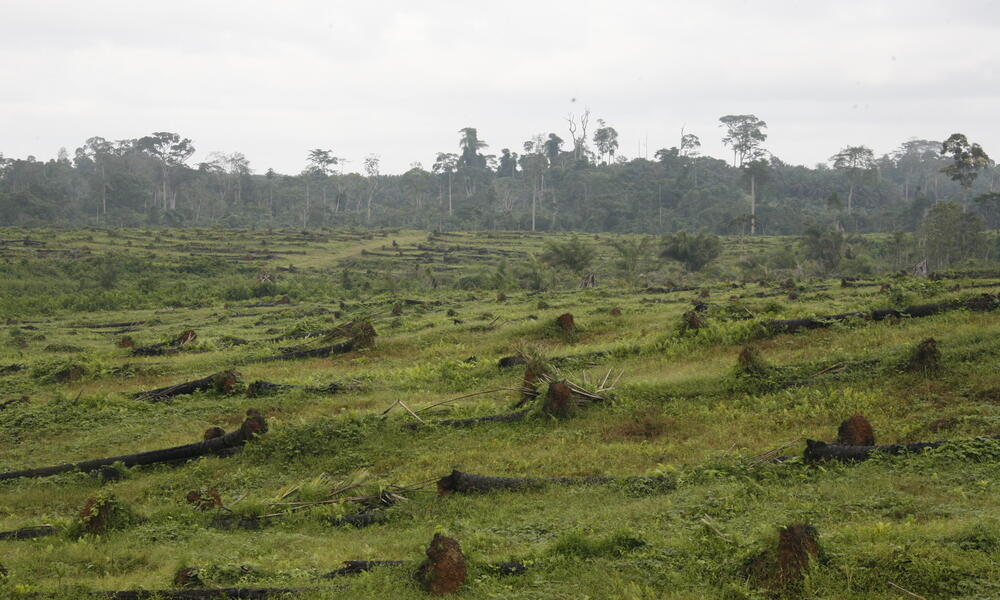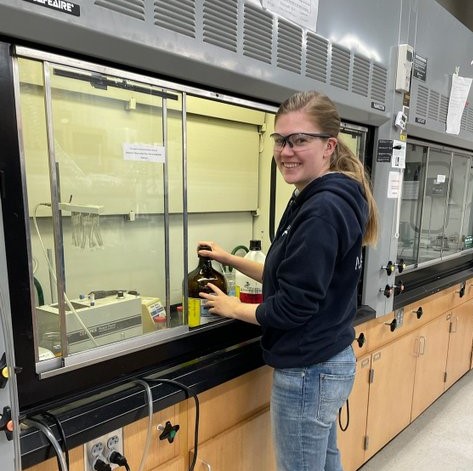[ad_1]
Pereira, T. J., Castellões, P. V., & Netto, S. A. (2022). Amazon River discharge impacts deep-sea meiofauna. Limnology and Oceanography, 14. https://doi.org/10.1002/lno.12197

When you think about the human impact of nature= the Amazon Rainforest springs to mind. It is estimated that 17% of the Amazon Rainforest has been cut down for agriculture, mining, or housing. If deforestation (the cutting down of forests) reaches 20-25%, the entire Amazon Rainforest may decline and end up a dry grassland. With a decline in trees, it becomes more difficult for the forest to maintain moisture, decreasing the chance of rain and leading to the further loss of trees. These changes would affect the animals living in the rainforest, but also the ocean.
All rivers lead to the ocean
Around 40% of all the water in South America ends up in the Amazon River, which leads directly into the ocean. As the second longest river in the world (behind the Nile River) and the largest river in the world by volume, the Amazon River sends over 300,000 gallons of freshwater into the ocean every minute. That is the same volume as about four and a half Olympic size swimming pools every minute. The water from the Amazon River brings with it sediment, nutrients, plants, and animals. All these affect the surface ocean and the deep sea.
The Amazon and the deep sea

A team of scientists based in Georgia, USA, and Brazil used microscopic organisms to understand how the river impacts the deep ocean (anything deeper than 200 m – about two football fields). But even that deep, the scientists found bits of the Amazon. They observed three times as much material from plants in the areas around the Amazon River than in areas further away, indicating that material from the Amazon River do make it to the depths of the ocean. The Amazon River also transported many small organisms, such as nematodes (tiny worms) ot the deep ocean. These nematodes are vital for the health of the deep ocean as they serve as a food source for other organisms. Without them, many other species would struggle to survive.

What now?
As the Amazon Rainforest continues to change, so will the ocean near the river delta. Without the Amazon River a whole ecosystem in the deep ocean will cease to exist, resulting in changes to other deep ocean systems. To protect the Amazon and unique ocean systems, we need to step up conservation efforts. For example, we can choose to buy products without palm oil, which is a large contributor to the deforestation of the Amazon. Palm oil is a common ingredient in products like peanut butter, cookies, shampoo, and detergents. These measures may seem small, but every little bit counts!
Cover Image: https://commons.wikimedia.org/wiki/File:Amazon_River_mouth_on_the_Atlantic.jpg

While I have never lived close to the ocean (Minnesota, Arizona, and now Central New York), it has always had a special place in my heart. I’m currently a PhD candidate at the State University of New York College of Environmental Science and Forestry (SUNY-ESF) studying reef and coastal biogeochemistry. I focus on the lipid and trace metal composition of settling particles and surface sediment in coastal systems, primarily studying coral reefs. When not diving or in the lab you can find me hiking with my dogs, reading, cross stitching, or just enjoying a good cup of tea!
[ad_2]
Source link

